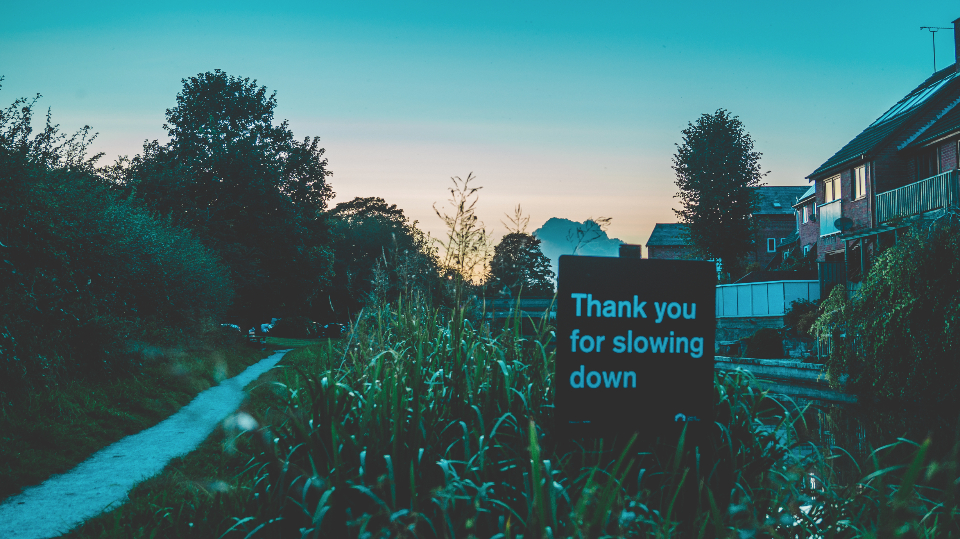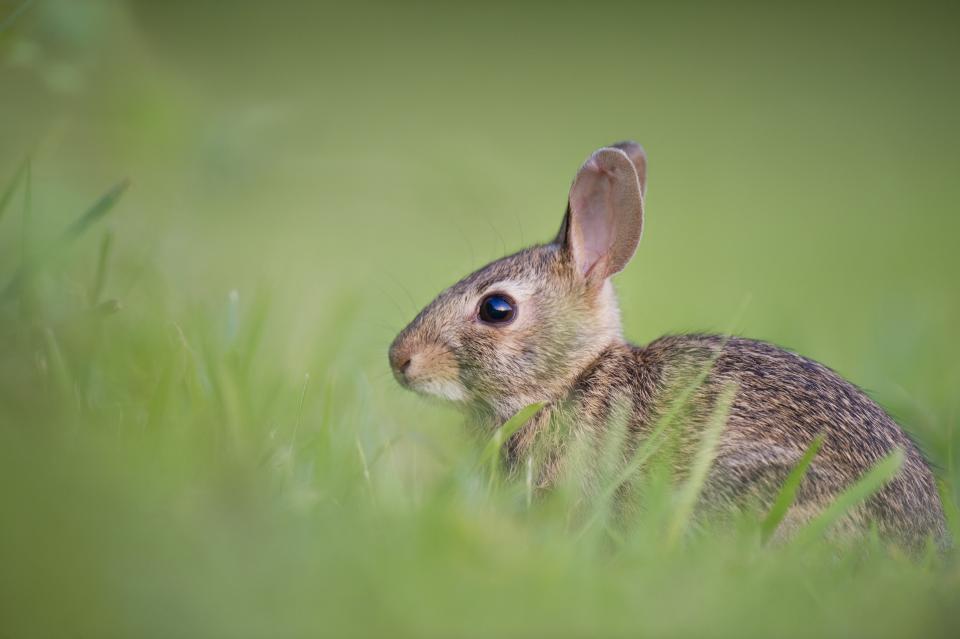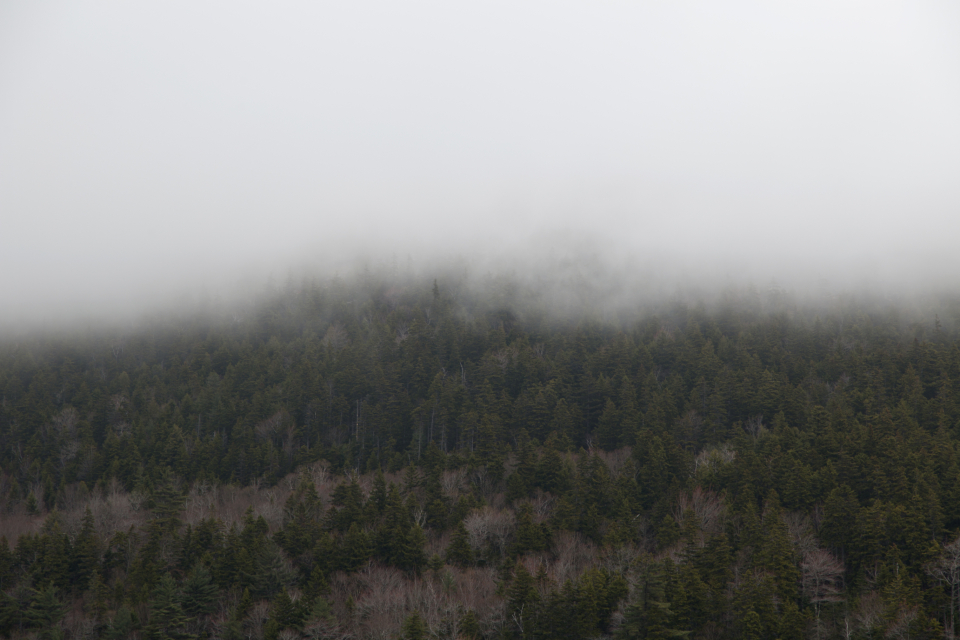- About Us
- Columns
- Letters
- Cartoons
- The Udder Limits
- Archives
- Ezy Reading Archive
- 2024 Cud Archives
- 2023 Cud Archives
- 2022 Cud Archives
- 2021 Cud Archives
- 2020 Cud Archives
- 2015-2019
- 2010-2014
- 2004-2009
 |
Frozen! |
But he’s not a real Aborigine, is he Mum?’ asked the child.
‘Oh, darling, it’s rude to talk about people like that’, said his mother, embarrassed by her eight year old’s impudence. She hoped the object of his question had not heard, or perhaps not understood. She was mistaken in both.
‘Not real? Do you want to pinch me?’ responded the grey bearded man. ‘What you think I am? A dream? I’m not a ghost, you know. That’s what my mob call you gubbas. Too white to be real. Yeah. My great grand daddy thought you’d just float away. That’s why he didn’t kill ‘em and eat ‘em’.
Blushing, the woman hastened to apologise for her son. ‘I’m sorry. He hasn’t been to the country before. He’s a bit overwhelmed by it all’.
The old man grinned. He had a gap in his front teeth, either from initiation or mishap. ‘No matter. It’s not his fault. Probably all those drawings of blackfellas in books. Are you surprised I’m wearing clothes, young gubba?’
It was the boy’s turn to be embarrassed. He moved closer to his mother, feeling for the reassuring hem of her jeans. He shook his head. The woman spoke to her child rather than to the man. ‘Too cold for that, isn’t it, James? You wouldn’t expect anyone to go without a coat on a day like this, would you?’
‘If you reckon this is cold, you should try it at night. Just as well there’s some warmth in a bottle of plonk’, said the man and took a swig from a brown paper bag. Then he held it out, offering it to her.
The boy stared, fascinated. The mother nervously eyed the sign, no more than three paces from the extended legs of the man. ‘Consumption of alcoholic beverages in Council’s car park is prohibited. Offenders will be prosecuted. By Order, V. Simpson, Shire Clerk’.
He was sitting on a hessian bag on a concrete path and leaning against a corrugated iron fence. It was the sunniest spot in the tarred square which formed the town’s main parking area for tourists. Squinting against the sun he looked up at the woman. ‘Don’t worry. They’re sick of arresting old Percy by now’ he said. ‘I’ve got nowhere else to go and don’t mind a night in the cells occasionally. So what can they do?’ He sounded almost sorry for the police.
‘You don’t mean you sleep here, do you?’ she asked, genuinely surprised and concerned.
‘Mostly’ he said. ‘Sometimes I get a bed. But mostly here. The cement keeps the sun’s heat for a good while and the plonk warms me from inside’. A big honeyeater, a leatherhead, landed in a nearby bottlebrush, shaking leaves and flowers. The boy was distracted.
‘He’s not a bad kid’ he said. ‘It’s not his fault if he’s only seen things in books. It’s a bit silly if they keep on painting blackfellas standing on one leg with boomerangs and spears. Stereotypes they are’.
She nodded, perhaps thinking of how women were stereotyped in literature as housewives. A man, obviously a farmer in drill pants, felt hat, riding boots and a penknife in a leather pouch on his belt passed by and said ‘Gidday Percy’. Percy waved what seemed like an unusually long and bony hand as it shot from the general rags which she now noticed was a khaki great coat. ‘Gidday Bud’ he replied. ‘God bless ya’.
‘You are well known’ she said.
‘Part of the furniture’ he laughed. If I ever die they’ll have to get one of those garden gnomes and stick it in my place. They’ve got black ones, ya know’. He laughed again and this time she detected a wheeze.
She looked around the car park. It was bare but protected from the sharp westerlies that blew up the main street. ‘It’s a pity there isn’t a bench or something to sit on’.
He laughed. ‘Used to be. Used to be. Apparently’ he said with a wink ‘too many drunks were bringing their grog out of the pub and sitting on it. So they took it away’.
She imagined that was not such a bad idea, although hard on the elderly, like this one. To change the subject she said ‘It’s nice land around here’.
‘My land, Sister. I was born here . It’s in my veins. That and this plonk’ he said and laughed again. ‘Where was your bubba born?’
‘Sydney’ she said. ‘Women’s hospital. You got any kids?’
The expression on his face became serious. ‘Yeah. Had more. Two boys and three girls. Got one boy and one girl left. And some grandchildren’ he said, swigging again. ‘You want to look after him, darling’. Love him all you can while you’ve got him’. Then a wet guttural cough shook him. She saw that there was not much body inside the coat. He must have been lean and wiry. Although black, his skin seemed transparent. He flicked spittle from his mouth and wiped his hand on the concrete.
‘That’s a terrible cough’ she said. The boy was becoming impatient to move on. He and his mother were visiting her father, a retired schoolteacher who had settled on a five acre block in an estate just out of town. The boy was expecting to be taken to find a rabbit for dinner.
The twinkle returned to the old man’s eyes. ‘It’s the only one I’ve got. I hope you aren’t going to take it away’. He winked at the boy who dragged on his mother’s arm. ‘Come on, Mum. Granddad’s waiting’.
‘In a minute’ she said. ‘The rabbits don’t come out till later anyway’. She did not want the two men in her life going off hunting, but knew better than to say as much to either of them. Males had their rituals and a mere woman interfered at her peril. ‘Do you take something for it?’
He looked up at her. Like him she wore a beanie over her hair. Unlike his however, it was not in Balmain colours and from the local supermarket but in natural wool spun from coloured fleeces and hand knitted. She had bought it in one of several shops selling such garments to visitors since tourism had become feted as the potential saviour of a depressed rural economy.
‘Feral. Bloody feral’ he spat out.
‘I beg your pardon’. He glanced up at her .The sun behind her made her reddish hair appear like a halo.
‘Bunnies. They went feral. You should eat the animals that live here That’s much healthier. Snakes and wallabies and possums. They’re the best tucker’. He grinned again.
He’s teasing me she thought. ‘What about medicine for the cough?’
‘Nah. Too much alcohol in them cough medicines. More than in a good bottle of muscat’ he said laughing. Despite herself she laughed too. ‘Of course’ he said ‘if you want to leave me a few cents for a bottle of cream sherry. That would help. Best blankets going’.
More people walked towards their cars and as they passed between her and the weakening afternoon sun, their shadows brought a chill to her back. There was something else too, perhaps an attitude which was almost a physical presence, suggesting she should not be speaking to this old man. She almost shivered, realising that it was getting late. ‘No. I don’t think I should do that’ she thought almost aloud and said ‘If it cured your cough it would get your liver’.
‘You are right about that, white lady. Well God bless and take care’. At this he began to sing ‘Bye bye bye bye baby goodbye. Gotta get a movin’ bye bye bye baby goodbye’. He looked to be lost in his bottle then, so she grabbed her son’s hand and they left.
Her father was splitting wood for the fire when they arrived in his four wheel drive. Smoke was curling from the chimney in the still and rapidly cooling air. The helped carry some shopping into the house and chatted excitedly about rabbits.
‘Get your parka then’ said his grandfather. Then to his daughter he said ‘There’ll be a big frost tonight. I’d better cover some things or we’ll lose them’. The frosts in the area were notorious, sometimes lying on the ground until midday. They were testament to the area’s clear skies, which also explained the town’s choice as the location for optical telescopes.
As the two went off armed with a .22 rifle, she said ‘You be careful now and do what your granddad tells you’. The boy was excited but earnest and kept to the older man’s side. She stayed inside and made herself hot chocolate with water from the big iron kettle always simmering on the stove. She loved the warmth from the burning wood and looked forward to the smells from the open fire her father would light after dinner as well.
Later, the boy was ecstatic as they sat at dinner. Not only had they bagged a rabbit to roast but just for tonight, his grandfather made the rule that you only had to eat vegetables with your rabbit if you wanted to. It was no surprise that the boy did not want to. Instead he tore pieces of white flesh from the bones. Grease from bacon strips his grandfather placed across the carcase soon worked its way across his face.
‘Old Percy’s an interesting character, all right’, said her father. ‘He turned up out here once and stayed for the night. He welcomed me to town and we got on well’. She was not surprised by this. He tended to see unusual qualities in people and often rejected the niceties offered by more genteel company. It was not difficult to picture the two of them yarning by the fire, no doubt teasing one another about their eccentricities and their age.
‘He’s hitch-hiked all around Australia and even spent a year doing the same in British Columbia. He reckons his father’s side has Negro blood. I don’t know whether it’s true or not but he reckons his great grandfather was a slave and that he ran away on the Underground Railway to Canada. Then he migrated searching for his El Dorado and gravitated towards black communities here’. He took plates away and returned with a fruit pie. ‘It makes a good yarn anyway’.
She expressed concern about Percy’s health. As a doctor, she knew when someone was ill and unlike many of her colleagues, could not distance herself from suffering when it did not concern a patient of hers.
‘Yes’ agreed her father, serving slices of the hot pie. ‘It’s sad but there’s not much you can do. He’s fiercely independent. He says he’s got no right to have lived this long. He’s buried two wives and three children, mainly because of lifestyle’.
‘There doesn’t seem to be any solution, does there?’ She was feeling the same frustration felt by many Australians of good will. ‘How will they survive?’
Her father shook his head, meaning perhaps that he did not know, or that he feared they would not. ‘There’s no easy solution. That’s for certain. Cream?’
At first she held up a hand to decline but then let her taste buds rule her head. ‘Oh why not? The pie smells terrific, thanks Dad’.
‘That’s the end of last summer’s blackberries’, he said. ‘I’ve had them in the freezer’. Then after swallowing a mouthful said ‘It might be the last altogether. In their wisdom they’ve released some biological weapon meant to eradicate the vines’. Then he reached across and rubbed his grandson’s hair. ‘Could be the end of the bunnies too. They won’t have anywhere to hide if the blackberries disappear, will they?’
‘Anyway, they’re feral!’ said the boy. His mother gave her father an impressed look. James constantly amazed her with his ability to hear and comprehend things when he did not seem to be listening. Sometimes she thought it a lost art. His grandfather smiled at the boy who now resembled a clown with huge purple lips. ‘Percy was something of a pugilist in his youth, apparently. He boxed at showgrounds so they could work their way around. That would explain the nose but it doesn’t seem to have damaged his brain’.
‘One of the lucky ones’ his daughter said. Maybe the training added years to his life though’.
Her father nodded, then said ‘Not really so lucky. He hit someone too hard one day. The bloke – another blackfella – died so Percy decided to hang up the gloves. Bet you can’t guess what he did next?’ His daughter shook her head which rested contentedly on one hand, the elbow beside her plate. ‘Went to medical school’.
‘You’re kidding’ she said. ‘Percy? At uni?’
‘It’s true. He went along to one of the doctors who were around here then – in the fifties I think – and got some coaching. The doctor’s wife helped him with reading and writing and the doctor got him through science and maths. Must have matriculated around 1960 I’d say. I don’t know how many years he did, but he was there all right. I think he had trouble with the later subjects but he probably had it all in his head’.
‘So he didn’t graduate?’ she said, growing more intrigued by Percy’s story.
Her father shook his head. ‘No. It must have been an eye-opener for some of his fellow students though. Some of your senior colleagues must remember him’.
‘What a waste’ she said, then bit her tongue. It was all a waste and his story was no more tragic than thousands upon thousands of others. She watched her son slurping warm white tea from an enamel mug with the spoon sticking out and wondered whether there would even be enough Aboriginal people left for his generation to worry about. She hoped that he would grow with compassion for people like Percy. Was she doing the right thing taking him to museums or were they giving him the wrong impression? What else could she do in the city? The whole place was built over the bones of Indigenous people and the gardens were fertilised with their blood. The museums preserved a culture of sorts but only like a butterfly in amber.
‘Oh well’ said her father, who had attained both a practicality and a philosophical outlook since his retirement. ‘Percy wouldn’t be so much the exception today. A lot of Kooris are making it into the professions’.
‘Sure’ she said ‘they might even become museum curators one day’. The curious look in her father’s eye showed her that her thoughts had been off on a tangent.
‘When they’re ready for it, I suppose so’ he said.
‘Or when we are’ she replied.
After dinner they drank port in front of the open fire and dozed in their chairs. In bed she lay awake for some time, thinking of Percy and his interesting past. She pictured him at the med school with its strange smells and hard instruments. She imagined him stuck in a glass case alongside other pickled exhibits: ‘First Aboriginal Student, circa 1962’.
Most of all she wondered about the role fate played in all their lives. She even felt a little guilty that she had been able to graduate and Percy had not. In an earlier time, prejudice might well have spoiled a woman’s ambitions. Had discrimination stopped Percy from joining the profession?
She woke early, having slept well and pulled back the curtains to see a world of white. The grass looked like fine ash. The trees glittered in the sunlight and a there was a bank of fog over the dam. Dressing quickly she went to the kitchen and turned the fire up then pulled on her boots and beanie to explore a natural phenomenon unknown in Sydney and other coastal areas.
The grass crunched as she walked. Her breath condensed in the air and inhalation was almost painful. There was a curious kind of updraught and a clarity in the air which made her squint. Her hold on the earth felt precarious. This was the kind of morning balloonists dream about.
Her attention was caught by a climbing rose that trailed over a trellis by the gateway. Here was a small red bloom, not in itself spectacular, but today it made her heart race. It was encased in ice, a stillness and purity which lent the rose even greater perfection.
Knowing that her father and son would love to see the flower like this, she went inside to wake them. But then she decided that was not fair, because it was her joy and her pleasure that she wanted to be increased. No. She should let them sleep. So she took the scissors from the drawer in the sideboard, went outside again and quickly snipped off the rose.
Why it had iced over while others nearby had not was a puzzle. But she took it inside and lifting the lid of the freezer, she placed it on top of a leg of lamb, between the peas and the puff pastry. Closing the lid, she had mixed feelings. A flower in the freezer was not the same as one frozen by nature. She wondered whether it would be all right in the fridge. She shrugged and left it in the freezer. Nothing was perfect. She had removed the rose to show them. She would have to take responsibility for her decision.
Her tousle-haired son toddled out first rubbing his eyes and yawning as he sniffed the porridge. When she showed him the flower he was not greatly excited but he did ask what she thought was an intelligent question. ‘Mum, what will happen to the rose when you unfreeze it?’ She admitted it would die and go into the compost with the weeds and vegetable scraps.
Her father came soon afterwards, rubbing his unshaven chin. The sound had always made her feel secure, somehow reflecting her father’s strength. He switched on the radio in time for the local news bulletin, while expressing a suitable interest in his daughter’s discovery. He was pleased that she had retained a sense of wonder and that her excursion from the city was not wasted. She seemed to be recovering nicely from her recent divorce.
Most of the announcements were of little interest to them – cattle prices, local government roadworks, a tour by the Minister for Police, sporting results and fixtures. But the last item stunned them both.
Percy had spent the night in the car park. It was the last night he’d spend there or anywhere. He had made the news only because he had died. His body was found earlier that morning by a baker on his way to make pies. The most bitter temperatures occur around dawn and Percy, once a fighter, once a traveller, once a doctor, was frozen to the spot.
In the warm farmhouse, three generations looked at one another. Each for a different reason, was lost for words.
© 2020 Tony Smith. Dr Tony Smith is a former political science academic. His writings appear occasionally on Pearls and Irritations.
Lead photo by Michał Grosicki, second photo by Drew Burrows, third photo by Ray Hennessy, fourth photo by Free Nature Stock, all from StockSnap‘
